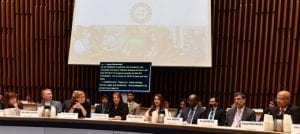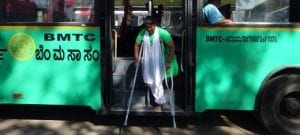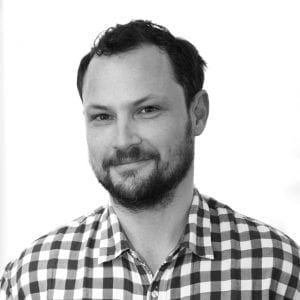2019 Global Report on Assistive Technology Consultation
Global commitments to ensuring affordable access to quality assistive technology (AT) for everyone were centre stage at the World Health Organization (WHO) in Geneva last week, and will have important implications for Asia and the Pacific.

On the 22nd and 23rd of August, more than 150 international delegates, including participants from organisations of persons with disabilities from Tonga, PNG, Rarotonga/Cook Islands, convened at the World Health Organization’s headquarters for a global consultation on the forthcoming Global Report on Assistive Technology.
Delegates presented nearly 100 papers, showcasing research and good practice on the epidemiology and market for AT, implementation research, appropriate technology, and powerful narratives from people who use assistive technology in their daily lives.
Despite assistive technology being at least a USD $140 billion industry worldwide, only 10-15% can access the AT they need. In Asia and the Pacific, access is particularly poor – and a persistent barrier to development for all. Access to AT is often most difficult for who need it the most. AT represents a common ground between stakeholders interested in the healthy ageing agenda, access to education, and health-related rehabilitation.
Representatives of organisations of persons with disability from the Pacific and Europe outlined how AT is central to disability-inclusion, but how access is patchy and depends on outdated technology and supply methods. They singled out inconsistent approaches to measuring and reporting access to AT in UNCRPD reporting as a particular challenge. The message from the disability community was clear: commitments to disability-inclusive development are incomplete without affordable, appropriate AT for all.

Recognising the importance of AT and the size of the challenge, new global financial commitments are helping deliver the right to AT through new evidence, investments and collaborations. NORAD, USAID and DFID have partnered with agencies including Clinton Health Access Initiative, UNICEF, WHO and the International Disability Alliance on an initiative called AT-Scale, which intends to catalyse change through better evidence, re-positioning AT in inclusive-development and other agendas, and through initiatives like market shaping. Market shaping seeks to remove system and financial barriers including tariffs, taxes, distribution challenges or weak purchasing power.
The Nossal Institute for Global Health’s Senior Technical Adviser, Dr Wesley Pryor, attended the consultation meeting to present recent research findings and to participate in numerous meetings and working groups on measuring the unmet need for AT, knowledge management, and links with the rehabilitation agenda. Wes’s attendance was supported by the International Society for Prosthetics and Orthotics, and he presented findings from their recent evaluation of the Nippon Foundation’s $50 Million dollar investment in assistive technology and disability programming in Asia.

The Nossal Institute, with its partner CBM Australia, has had a long interest in supporting access to assistive technology, through research, advocacy and partnerships with regional implementing agencies and DPOs. “GReAT was an opportunity to think about how we can best learn from and contribute to a new global agenda for assistive technology”, Wesley said. “Initiatives like market shaping will have direct impacts in implementing countries, and create new evidence about what might work elsewhere. There are plenty of examples the world can learn from in Asia and the Pacific. Access to AT spans our partnership’s interests in disability-inclusive development and rehabilitation in health systems,” he said.
The Nossal Institute is collaborating on work to support WHO partners including member states to measure access to assistive technology in populations, and uses its work in understanding disability-inclusion to help inform evidence concerning unmet need for AT. “We’re able to measure unmet needs for AT, evaluate what’s working and what isn’t, and have new information about how interventions like market shaping might disrupt some of the barriers we’ve all seen in our work. The challenge is to translate findings into design and investments with the scale necessary to make a meaningful and lasting impact on a perennial issue for disability-inclusive development practice.”
